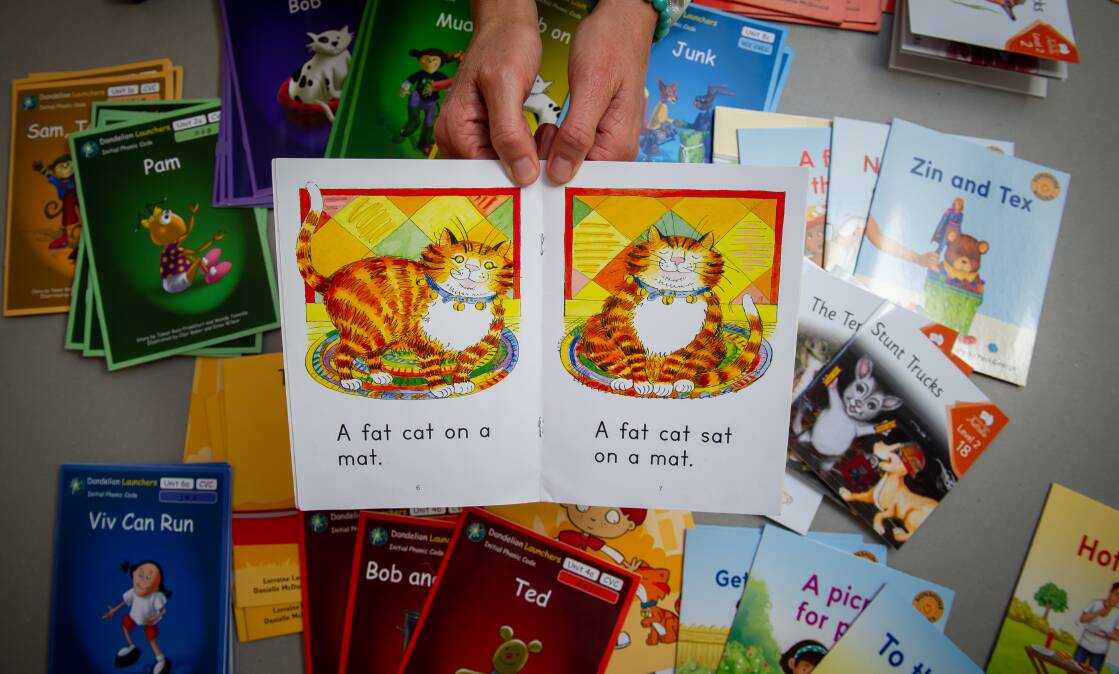The ACT is not taking the evidence on how children learn to read seriously and Canberra parents are in the dark about how reading is taught in schools, a new Grattan Institute report says.
Grattan Institute Education Program Director and lead author of the report Dr Jordana Hunter said in the typical Australian classroom of 24 students, eight can't read well.
"Australia is failing these children," Dr Hunter said.
"And it's a preventable tragedy - the reason most of those students can't read well enough is that we aren't teaching them well enough."
The report argues Australia should commit to a 10-year reading guarantee strategy to ensure at least 90 per cent of students can learn to read proficiently.
The Northern Territory and Tasmania, which have high levels of community disadvantage, perform particularly poorly in reading in NAPLAN and international testing.

However, the report said even the ACT and Victoria, the most socioeconomically advantaged jurisdictions, have about 25 per cent of students who are not proficient readers.
Students from poor families particularly struggle with reading and the gap between advantaged and disadvantaged students was getting worse in the past decade.
Evidence not fully accepted
The report, titled The Reading Guarantee: How to give every child the best chance of success, said many education systems did not fully accept the evidence about the best ways to teach reading.
"The ACT and Victorian governments, as well as many Catholic archdiocese and independent schools, need to catch up to other systems that are taking the evidence about how to teach reading seriously," the report said.
"Otherwise education departments and sectors risk leaving schools to make their own decisions based on limited advice, or giving mixed messages to schools about how they should be teaching reading."
An Education Directorate spokesman said it took reading taken "very seriously" and the report would be considered as part of its independent inquiry into literacy and numeracy performance.
"The ACT government has invested significantly in literacy learning outcomes across ACT public schools," the spokesman said.
"This includes through engaging nationally regarded literacy experts, as well as appointing instructional mentors, building teacher capability and leadership capacity to improve literacy instruction in schools.
"A suite of resources are available to teachers to support them in delivering literacy instruction."

The spokesman said the ACT was the highest-performing jurisdiction in recent NAPLAN and Programme for International Student Assessment (PISA) results.
The 2022 PISA results showed ACT performs well compared to other states on raw scores, but when socio-economic advantage was taken into account the ACT did not perform well across the key domains.
A large portion of cohorts performed well below similar students in the 2023 NAPLAN tests.
The Catholic Education Canberra-Goulburn Archdiocese was praised in the Grattan Institute report as being a leader in reforming reading instruction through its Catalyst initiative.
Evidence shows that a structured literacy approach to teach reading is best, drawing on decades of cognitive science research.
This approach requires an explicit and systematic teaching of the key skills needed to be good readers: oral language, phonemic awareness, phonics, fluency, vocabulary and comprehension.
The structured approach is in contrast to the "whole language" approach popularised in the 1970s which views learning to read as a natural, unconscious process.
The report said some governments, including South Australia, Western Australia, NSW, Tasmania and Queensland, have started to take seriously the evidence on reading.
Parents 'in the dark'
It said the ACT and Northern Territory had very limited public information on their recommended approach to reading instruction.
"This leaves parents and the community in the dark about the reading approaches used in their children's classrooms," the report said.
The Education Directorate spokesman said it was in the process of updating its website with information on its move to teaching to the new version of the Australian curriculum.
"The ACT public school system provides a systematic, evidence-based approach to early literacy instruction through the 10 Essential Instructional Practices in Literacy," the spokesman said.
"This instruction includes the explicit teaching of phonological awareness and letter-sound relationships in the early years."
The Grattan report recommended Australia's governments and Catholic and independent school sector leaders commit to a 10-year strategy including a national year 1 phonic screening check.
The strategy also involves giving schools specific guidelines on how to teach reading, ensuring every school has appropriate curriculum materials and assessments and training teachers through micro-credentials and creating specialists literacy roles.







